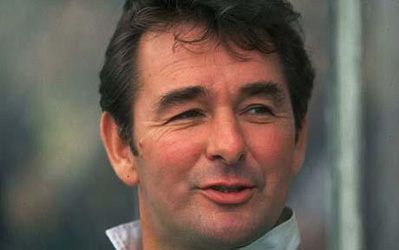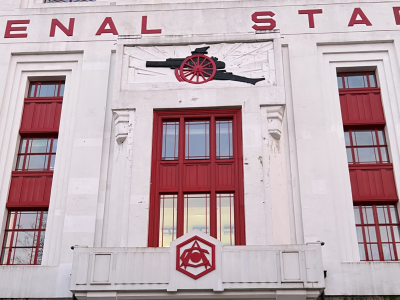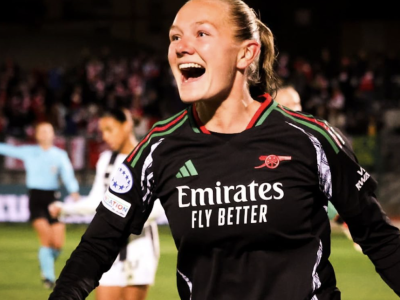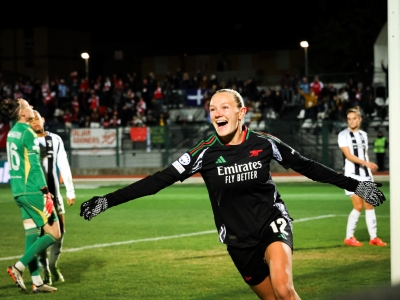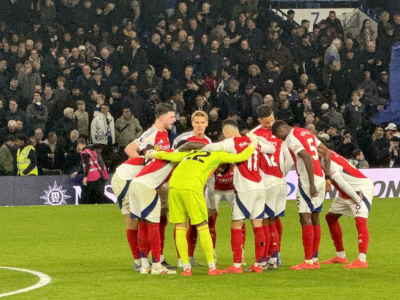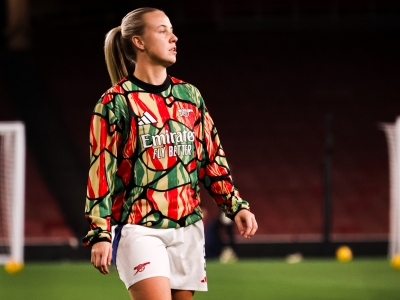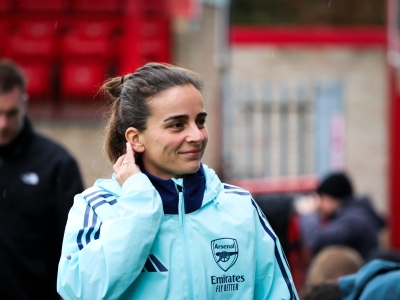The past is a foreign country and they indeed do things differently there. The modern world in contrast can be a confusing and disorientating place, hence why the popularity of nostalgia is usually due to the need for mental comfort in an ever shifting landscape. There is however often a mistaken tendency to extol the past as somehow wholly better in its entirety than what the present holds or the future may bring. Recently, a friend of mine expressed on his Facebook status his fears for the safety of children in the modern world, after a past few months which has witnessed the Tia Sharpe and April Jones incidents. In reply, I sarcastically expressed my support for his viewpoint, stating that in my day the only people who ever harmed children were usually hosting Top of the Pops.
Don’t get me wrong, it’s not that the good old days were entirely bad either. It’s just that the memory often has a tendency to rose-tint the past and filter out the crap. The weekly Thursday night musical nostalgia fix on BBC4 that is TOTP 1977 – which viewing in hindsight after recent revelations now weirdly feels like one big re-enactment scene from another old BBC1 Thursday night favourite, Crimewatch – is a perfect example. One minute you’re watching something as legendary as Donna Summer, the Jacksons, the Jam or the Stranglers, the next minute you’re enduring the Bay City Rollers or even dross like ’No Charge’ by JJ Barrie – a song that wisely teaches children of the perils of offering services to adults in exchange for treats, even if the show’s now infamous sometime host practised something entirely different.
The football world isn’t a great deal different either. There is no weekly MOTD 1977 doing the rounds on BBC4; there is however a Big Match Revisited on ITV4 for the pleasure of armchair football historians wishing to view old fixtures from the 1980s. It would be wise for people to often remind themselves that a journey into football’s past is every bit as much a rough with the smooth style experience as it is with the pop world. For example, many people have expressed that if the choice was open to them they would take the football world of the late 1980s in its entirety over what football offers today – I was there and yes there definitely was much about then I personally would take over today also. In contrast however, the recent Hillsborough revelations also shows you that some elements of what surrounded football back then can quite frankly stay exactly where they are. Anyone wishing to review the When Saturday Comes post-Hillsborough editorial will gain a vivid picture of a side of football spectating in the late 80s that was far from joyous.
While football fans today may bemoan that they are treated as nothing more than a walking cash machine, they can at the very least console themselves that they are no longer the folk-devil the world saw them as 25 years ago – an image that was every bit moulded by a political establishment that openly saw them as ‘the enemy within’. Modern fans may also bemoan how many among their number stream for the exit once their side are not winning, or the regular exodus that occurs once the clock hits 80 minutes to beat the queue at the tube station. They can however take comfort from the fact that they are not kept behind for a considerable amount of time after the final whistle and then escorted back to the station on a route home not necessarily of their choosing – as was the norm for anyone who had the audacity to watch their side play away from home in the late 1980s.
Don’t get me wrong, modern football has as much chaff as it has wheat – such as wages that defy market sense due to outside revenue fuelled by foreign feudal overlords robbing their indigenous nations of their material wealth, a small perpetual oligarchy of clubs obtaining the top 5 positions year in year out, the inability to obtain entry at the gate on the day and stand with your friends, domestic trophies devalued because their financial worth is less than coming 4th in the league – like Matthew Bazell, you can write an entire book on what is wrong with modern football, but at the same time it is as important to not portray it as rotten to the core because, to be fair, that would be equally as misleading as swallowing wholesale the spiel that constantly emanates from the corporate machine.
The biggest bugbear of the day with the football world, and particularly so with the Arsenal, is without doubt the cost of match day attendance, as highlighted this week by the BBC’s Price of Football Survey 2012. In the last twenty years the price of football attendance has risen by over 600%, not a positive development by any means, however as alluded to by Frank Lee’s article on the Online Gooner the price of any commodity is almost always governed by the equation of supply + demand – and football isn’t likely to be any different, especially in London where the price of everything is dearer than everywhere else in the UK. One variable in the equation that is rarely ever mentioned when this subject is discussed, is that the demand for football attendance has risen if not by the same degree as the price of the commodity, then certainly by a degree far in excess of what it had been at the height of football’s ‘bad old days’ in the mid-1980s.
In May 1986, as a youngster I attended a top flight league game against West Bromwich Albion at Highbury, the attendance for which had been just over 14,000. In 2009 I attended a North London Derby FA Youth Cup Quarter Final at White Hart Lane for roughly the same price, which had an attendance in excess of the latter fixture. Even if we take into account the club’s dubious recording of attendances at Ashburton Grove in recent seasons, the attendances are almost always in excess of what you would have seen throughout the 1980s and has been at most top flight clubs. It would be nice if, like the fictional mother in the JJ Barrie tune, football clubs realised that the cost of real love is no charge however, as with Barrie’s follow up duet with Brian Clough – you can’t win ‘em all. Therefore, while football remains relatively popular in historical terms it’s not likely that football attendance in the modern world is going to be cheap.
There is also a lack of recognition of some elements of today’s experience that are actually better now than they were of just a few years ago. The on-pitch success of the side in the late nineties and early noughties, as well as the dramatic rise in admission fees since 2006, has over the years masked the fact that for the final ten years at Highbury access to tickets was often out of reach for most people, regardless of what price they were willing to pay for the tickets. Baring in mind that for this period Red membership did not even exist, that there was a ticket registration scheme with a four year waiting list and a six year season ticket waiting list – the chances of a Saturday Premiership match going on general sale back then was extremely slim. For many old skool fans, their habit of regular match day attendance was severed during these years, as opposed to our post-Grove era. One of the few opportunities to attend had been watching a second string Arsenal side in the early rounds of the League Cup – where, if memory serves me right, I do not recall admission fees being at concessionary prices for these games as they are today.
For a Red Member the price of some of today’s matches may sting, the opportunity get hold of tickets however is undoubtedly greater than it was a decade ago which, in some instances I know of, has actually reconnected some people with the club they lost around the mid to late 1990s. There is also a collective amnesia at the fact that the move from Highbury is not where the atmosphere was lost at the Arsenal, as the ‘Highbury Library’ tag suggests. Atmosphere at Highbury was effectively lost once the terraces went altogether in the early 90s, which in turn made Highbury a much smaller physical space than it had ever been at any point in its history. For those of you who have managed to sneak through the gates at the new housing complex at Avenell Road where our home once stood and stand on the gardens where our hallowed turf once was, after six years of the Grove its astonishing how small and poky the place now looks and feels.
Also, there is to some degree an under-appreciation of the new ground by many of the fans. The commercialized name irritates me as much today as it did when it was first incepted; however the size of the place has an understated degree of awe about it, as does its architectural design. Bizarrely enough, for a ground that’s only six years old, the ‘Arsenalisation’ project – with its murals, statutes and the return of the clock, seems to have made the ground scream ‘history’ and reminded me that – rather than a club with a grossly exaggerated sense of its historical importance like Tottenham Hotspur, or a side whose significant achievements have mostly come in the last 15 years, like Chelsea – Arsenal are a side who have been ever-present at the business end of English Football for most of the last century. There’s a big part of me that feels that if the Arsenal were ever to regain their trophy-winning mojo, the ground’s identity may even finally come into its own. The ticket exchange scheme has also this season allowed me to purchase tickets 24 hours prior to the kick-off – not quite the same as paying on the door, but surely the nearest you’ll ever get to it.
The Matthew Bazell’s of this world are right that football needs to review the way it goes about its business. Personally, I don’t think it’s too outlandish to suggest that in this current economic climate that day might not be too far off. People often refer to their love of football as some sort of ‘addiction’, however unlike genuine addictions - such as with drug or alcohol abuse, non-one is ever going to sell themselves, pimp their missus or violently mug OAPs to pay for their habit. One of the few perks of the modern world is that everyone knows a pub or website that shows almost every game live in its entirety for little or no cost, therefore the football world will realise that, as with most commodities there are limits to what you can charge the consumer before you eventually price yourself out of the market altogether. When football reinvented itself in the 1990s, there is no doubt that it threw the baby out with the bathwater. It’s important that if football is to reinvent itself again in the 2010s that it doesn’t repeat the same mistake. Rather than look backwards to the 1980s, it should actually be looking eastwards to the Bundesliga.
It’s fair to say that in recent seasons Germany hasn’t produced the goods in the Champions League, however with cheaper admission fees, greater fan involvement, off pitch financial solvency, the highest average attendances in Europe and even safe standing terracing it is no doubt encompassing something that the Premiership lost long ago. With Bayern Munich just a few minutes away from beating Chelsea last May, a steady production line of talented German players and Borussia Dortmund’s impressive display away at Manchester City – you get the feeling that on the pitch they’re not that far off either. Therefore if we paid more attention to the example of our distant Saxon cousins, then there really is no need to return to the 80s in order to get back to the future.
*Follow me on Twitter@robert_exley

